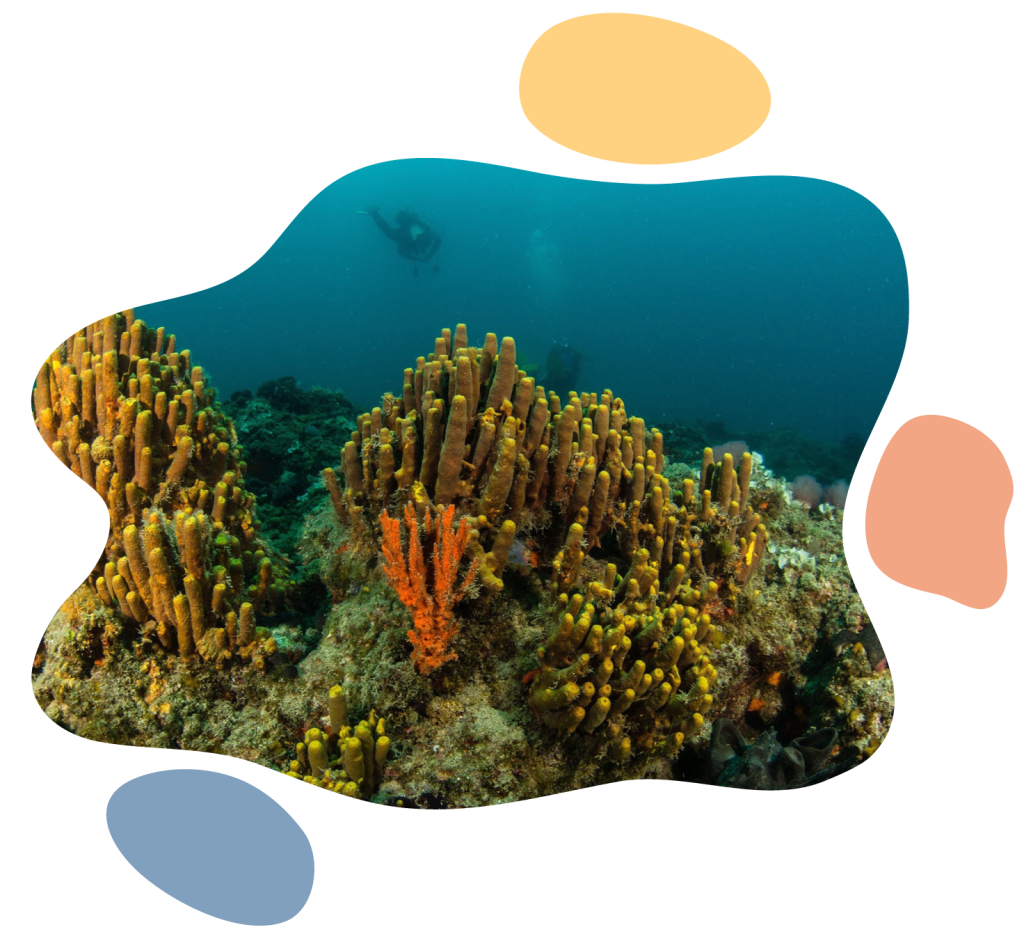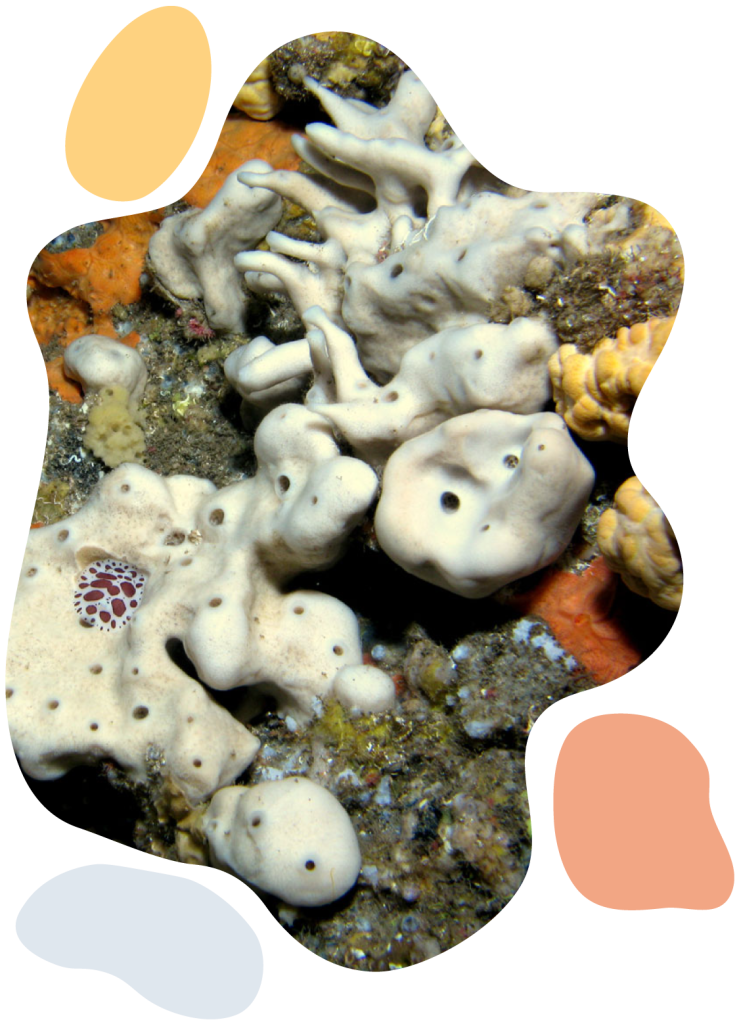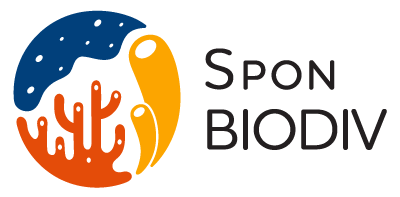SponBIODIV is a key initiative to protect marine sponges and their ecosystems.
Its main activities include:
- Improving the understanding of marine sponge diversity and distribution
- Creating new monitoring tools for sponge habitats
- Increasing knowledge of the threats that marine sponges are facing
- Developing effective conservation measures to protect restore marine sponges
- Contributing to the implementation of the EU Biodiversity Strategy for 2030

Objectives & Main Research Questions
SponBIODIV’s main goal is to establish a sponge diversity and distribution baseline knowledge, as well as delivering tools to improve management and conservation of sponges across the Atlantic and Mediterranean. More specifically, this project will aim to:
- Identify bio and phylodiversity hotspots of sponge and sponge habitats across the Atlantic and Mediterranean, by compiling the most comprehensive dataset of sponges of this region.
- Establish ecological/genetic corridors and refugia areas between species and regions, combining biophysical modelling and population genomic approaches.
- Develop new methodologies for wider biodiversity detection and monitoring of sponge habitats by harnessing the potential of eDNA and sponges as natural samplers of eDNA.
- Assess the current conservation status of species and habitats in line with major international processes.
- Engage relevant stakeholders for co-production and co-delivery of data and practical tools to inform management, conservation, and restoration actions.
- Raise public awareness of the importance of sponge species and habitats.

Work Packages
Generate and assemble a comprehensive dataset of sponge records needed to investigate the large-scale patterns of sponge species/habitat diversity.
Develop a phylogenetic framework for the sponge taxa of the Atlantic and Mediterranean and use it to investigate the evolutionary history of sponge diversity in these regions.
Investigate the connectivity and resilience of sponge ecosystems across the Atlantic and Mediterranean and develop models to predict their response to environmental change.
Develop and test eDNA-based monitoring tools for sponge diversity and ecosystem health and apply them to selected sites across the Atlantic and Mediterranean.
Develop and test management tools for sustainable conservation of sponge ecosystems and apply them to selected sites across the Atlantic and Mediterranean.
Build relationships with key stakeholders in the Atlantic and Mediterranean regions. This will be done by identifying their knowledge needs, finding out who the key end-users are, and determining the best way to engage with them throughout the project. This will help to ensure that the project is relevant and useful to the people who matter most.
Ensure effective coordination, data management, and communication of the project results. This will involve project management and coordination, data and digital outputs management, and communication, dissemination, and outreach.
